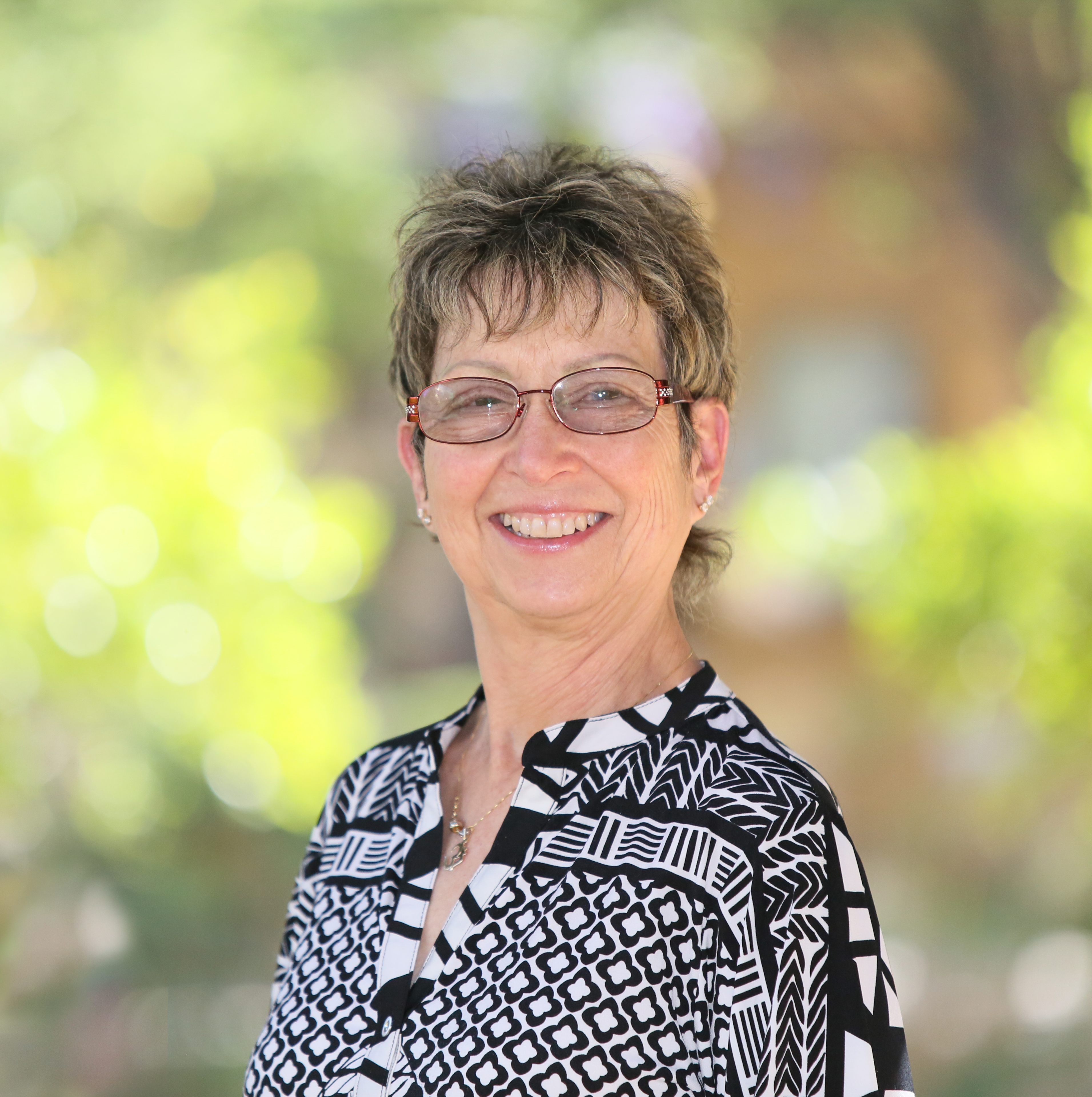 When the only original buildings on these 355 acres were the old farmhouse and a larger ranch house where the Community Building now stands, before roads and trails wound around the property, before the lake was dug and filled, the school that would become Mount Madonna first opened its doors: the open space around a carport and the flaps of a tipi.
When the only original buildings on these 355 acres were the old farmhouse and a larger ranch house where the Community Building now stands, before roads and trails wound around the property, before the lake was dug and filled, the school that would become Mount Madonna first opened its doors: the open space around a carport and the flaps of a tipi.
Jivanti taught her first class in the tipi where the lake now rests. She had recently completed her Master of Education degree with an emphasis in pupil personnel services at Florida International University and through a series of fortunate events found her way to Santa Cruz.
 Jivanti was born Helene Rutansky in Miami Beach, Florida, during a hurricane. Her father’s family had left Russia and her mother’s Austria and both ended up in New York, but her parents didn’t meet until they migrated south to Miami and joined a Jewish social club. “My parents formed community. The people who they met in this club they were best friends with for life. They were like extended family,” Jivanti said of her early memories in Florida. Throughout her childhood, they lived in the suburbs. “The ambience of the world was different then. People took care of each other and grew up together. Everyone knew each other’s business. As a teenager, I learned to be more selective in what I told my mom because the whole neighborhood would know. That was the village. We did take care of each other.”
Jivanti was born Helene Rutansky in Miami Beach, Florida, during a hurricane. Her father’s family had left Russia and her mother’s Austria and both ended up in New York, but her parents didn’t meet until they migrated south to Miami and joined a Jewish social club. “My parents formed community. The people who they met in this club they were best friends with for life. They were like extended family,” Jivanti said of her early memories in Florida. Throughout her childhood, they lived in the suburbs. “The ambience of the world was different then. People took care of each other and grew up together. Everyone knew each other’s business. As a teenager, I learned to be more selective in what I told my mom because the whole neighborhood would know. That was the village. We did take care of each other.”
 Despite the comfort that her parents had created in the small suburban enclave, the Florida of Jivanti’s youth was segregated and full of conflict. Signs on Miami beaches declared the exclusion of people of color and people who were Jewish. High school students who immigrated from Cuba were sent to the principal’s office for speaking Spanish at school. Jivanti grew up listening to people’s stories and observing their struggles, yet hoping for a better world, a world of greater acceptance, inclusion, and peace. Fortunately, these were the values her family instilled in her.
Despite the comfort that her parents had created in the small suburban enclave, the Florida of Jivanti’s youth was segregated and full of conflict. Signs on Miami beaches declared the exclusion of people of color and people who were Jewish. High school students who immigrated from Cuba were sent to the principal’s office for speaking Spanish at school. Jivanti grew up listening to people’s stories and observing their struggles, yet hoping for a better world, a world of greater acceptance, inclusion, and peace. Fortunately, these were the values her family instilled in her.
Before her birth, her father had dreamed of becoming a doctor or an accountant, but his dreams were put on hold when his own father was diagnosed with leukemia. Suddenly he had to drop out of college to care for his family and their business. “He taught me what it was like to surrender to something, but I was really sad for him that he could never achieve his dreams and goals.” Jivanti’s grandmother on her mother’s side had died in childbirth, and her grandfather remarried a woman who had moved from California with her two children. This was the grandmother that Jivanti knew and looked up to. “She was bold. My step-grandmother was awesome. She was independent. She swore she would always have money of her own and ways to earn money. She was artistic. She was courageous. She was a role model definitely. And in her old age, she even did yoga. She was about 4’7”, drove until her 90s and died at almost 101 years of age while she was playing cards!”

Jivanti learned about courage, gumption, and following one’s dreams. She attended the University of Florida in Gainesville and earned a degree in sociology. After college, she moved to New York to attend graduate school in sociology at NYU, but she soon discovered she wasn’t passionate about this field. While she finished out the year, she spent a good deal of time with her New York family, and in particular a cousin, who was studying dance and choreography at Sarah Lawrence. “I love the dance world,” Jivanti said, “I just love dance. I tried to make that a part of my studies, despite my professors’ chagrin. I was going to concerts, I was interviewing people in Harlem, I was studying dance as an institution, and I was introduced to a world that was so much more accepting of diversity than Miami was in those days.”
In the summer following her first year of graduate school in New York, Jivanti hitched a ride through the Village Voice to visit a college friend at a yoga retreat in Kansas. She then continued on to California and ended up in Santa Cruz. While walking along Pacific Avenue, she felt like she had found her home, without really knowing why. She decided she would return someday. This was in 1971, which, she later discovered, was the same year that Baba Hari Dass first moved to California.
 The next few years were formative experiences of study and growth. Jivanti moved back to Florida and settled in the bohemian Coconut Grove where she spent time at the I-Ching store and its neighboring temple, and she met a teenage Premdas Rohan, Prema Harris, and Bernie and Radha Shapiro with baby Yogi (‘94). Baba Hari Dass visited the temple twice while Jivanti was studying there, and she knew that he was her teacher.
The next few years were formative experiences of study and growth. Jivanti moved back to Florida and settled in the bohemian Coconut Grove where she spent time at the I-Ching store and its neighboring temple, and she met a teenage Premdas Rohan, Prema Harris, and Bernie and Radha Shapiro with baby Yogi (‘94). Baba Hari Dass visited the temple twice while Jivanti was studying there, and she knew that he was her teacher.
Still wanting to complete her graduate studies, Jivanti enrolled at Florida International University to pursue her Master of Education. She studied under Dorothy Tucker, PhD, who was one of the first to study organizational development and work with groups in the U.S. government on race and racism. Jivanti and another young scholar joined her efforts by collaborating on design. Dr. Tucker convinced Jivanti to accept a paid internship at a methadone clinic. When Jivanti insisted that she loved the work she was doing with Dr. Tucker, her mentor said, “But you have to earn money.” The internship led to a full-time job and over the next few years, Jivanti worked with young adults battling addiction. Dealing with police and violence were common, so while she learned a lot about herself working in a very crisis-oriented and often dangerous field, she left the position, and equipped with deep understanding of various therapeutic approaches, Jivanti sought to achieve her original goal: to work with kids in schools and move to California to study with Baba Hari Dass.
Her friend offered to drive her west. Much like Jack Kerouac’s journey, they spent a month in Colorado before venturing on to California. Jivanti moved in with a college roommate who was living in Palo Alto. Each Sunday, she rode with Jaya Maxon to connect with Baba Hari Dass, who was now living in Santa Cruz, where she met Sadanand Mailliard, Dayanand and Sarada Diffenbaugh, and other devoted students. Minutes after receiving a job offer as a counselor at a halfway house, she received a phone call from Sadanand. He was looking for people to share a house in Santa Cruz and asked if she would be interested in moving down the coast. She rescinded the job offer and moved to Paul Minnie Street in the Live Oak neighborhood of Santa Cruz with Sadanand and Soma Goresky. They lived next door to a house owned by the woman who started Gateway School.
This was an exciting time to watch the evolution of what would become Mount Madonna Center (MMC). The plans were underway, and Sadanand and other leaders were working furiously on all that went into purchasing the land and organizing the community endeavors. In 1978, Jivanti moved to Browns Valley Road and started working at the Watsonville YMCA in the Latchkey Afterschool Program. She was responsible for picking students up from school and various activities. She drove an old bubble school bus with a wooden block on the clutch, so her foot would reach, and as she parked the bus that first day to unload students, she crashed the school bus into a street sign. Students had to climb out the back of the bus. The very next day, much to her surprise and disappointment, the director handed her the keys and told her to try again.
 Jivanti moved with the other early residents to the Mount Madonna property where she initially lived in a tent and then moved into the attic of the old ranch house with two other women. “It was tight quarters,” she recalled, “but we didn’t need space. We were young, we hardly had any possessions, and we had the whole mountain. We did everything. We cooked, we cleaned, we worked on the rock crew, we got poison oak, we played with the kids, we studied with Babaji. It was a pretty amazing time to be part of the project.”
Jivanti moved with the other early residents to the Mount Madonna property where she initially lived in a tent and then moved into the attic of the old ranch house with two other women. “It was tight quarters,” she recalled, “but we didn’t need space. We were young, we hardly had any possessions, and we had the whole mountain. We did everything. We cooked, we cleaned, we worked on the rock crew, we got poison oak, we played with the kids, we studied with Babaji. It was a pretty amazing time to be part of the project.”
Her first responsibility for the school, beyond helping with the young children in the tipi and subbing, was college counseling. College counseling was her most rewarding role overall. “That was something that I felt deeply about because I had come from a family that benefited from the Veteran’s Administration benefits of housing after WWII, I was lucky enough to benefit from very low interest loans, and I wanted anyone who wanted to go to college to be able to do that,” Jivanti said. She never had any college guidance from her high school or her parents.

“Like most of the people who founded Mount Madonna School (MMS), I had checked out in high school. It was more about performing according to the test, don’t deviate in terms of answers, don’t ask why or why not. I went to a high school where girls were not allowed to wear shorts or open-toed shoes. It was not air-conditioned and very hot and humid. I was one of those people that asked why and why not, especially in my later high school years, so I really wanted a school where people could question, people could discuss, and people who wanted a higher education had the opportunities to do so and were guided, and where women could pursue any course of study that they were interested in. I pretended I couldn’t type because I refused to become someone’s secretary.” College counseling was a duty that called upon Jivanti’s educational training and her dedication to lifelong learning. She loved bonding with students in this way—learning about their passions and goals and researching schools that could help them achieve those goals.
Throughout Jivanti’s time at MMS, she held many other roles—assistant to Sri Gyan James McCaughan in a fourth, fifth, and sixth grade combined class (Lilith Ohlson-Perez, ‘90, Brightstar Ohlson and Shannon Kelly, ’92, were in this class), producer and coordinator for the Ramayana!, auction coordinator, guidance committee, director of admissions, director and head of the upper school, and director of the high school. One of her most cherished roles was running the girls boarding school.
Babaji counseled Jivanti to return to school to get a doctorate degree, and when she responded that she didn’t have the money to do that, he asked her to start a girls boarding school instead. Jivanti moved into the Seminar House with the first girls boarding school resident, an eleven-year-old girl from New Mexico. As more girls joined the program, they moved into the newly built Community Building where Jivanti lived in a tiny closet off the girls’ bunk room, the current home of the programs and finance offices, and then they moved downstairs below the east dining room and later to the Log Building. Eventually the Orchard House was built, and it became the official home of the girls boarding school (and one grey-haired little boy, Bhab the poodle, who became Jivanti and Anna Dasbach’s companion after being found emaciated and alone on the property). Over the nearly two decades that Jivanti ran the girls boarding school, she was caregiver, disciplinarian, and confidante for many girls.
 While MMC and MMS were flourishing in Santa Cruz County, members of the community were helping to fulfill one of Babaji’s greatest dreams of building an ashram and orphanage in his homeland. Jivanti traveled with Babaji to India twice, once in the ‘80s when the land for the orphanage was purchased and again in the ‘90s. Babaji had another dream: to bring two of the children from the orphanage back to California to be raised in the community. On Jivanti’s second trip to India, Prabha Sharan (‘07) was a small child and Soma (‘11) was a baby. She did not know at the time that these two girls would be the children that would move to MMC. When Prabha was a sophomore in high school and Soma was in sixth grade, they made the long trek around the world. They were soon joined by Amita Kuttner (‘08) from Canada, and together they adopted a dog named Bella (sweet Bhab was long gone).
While MMC and MMS were flourishing in Santa Cruz County, members of the community were helping to fulfill one of Babaji’s greatest dreams of building an ashram and orphanage in his homeland. Jivanti traveled with Babaji to India twice, once in the ‘80s when the land for the orphanage was purchased and again in the ‘90s. Babaji had another dream: to bring two of the children from the orphanage back to California to be raised in the community. On Jivanti’s second trip to India, Prabha Sharan (‘07) was a small child and Soma (‘11) was a baby. She did not know at the time that these two girls would be the children that would move to MMC. When Prabha was a sophomore in high school and Soma was in sixth grade, they made the long trek around the world. They were soon joined by Amita Kuttner (‘08) from Canada, and together they adopted a dog named Bella (sweet Bhab was long gone).
 Nearly every Sunday Jivanti would take the girls to visit Babaji in Bonny Doon. He taught the girls how to cook Indian food, and they played games and watched Bollywood films together. “I learned how hard it is for international students to come into a country with such different values, philosophies, rituals, and how hard it is to maintain them because the culture somewhat demands that they become Americanized,” Jivanti reflected. “Underneath it all, I think they still maintain the richness of their own culture. That was a huge learning experience for me, a wonderful experience for me…. The global philosophy that all kids are ours? I really buy into that. I experience that. I want that. It is our responsibility as human beings.”
Nearly every Sunday Jivanti would take the girls to visit Babaji in Bonny Doon. He taught the girls how to cook Indian food, and they played games and watched Bollywood films together. “I learned how hard it is for international students to come into a country with such different values, philosophies, rituals, and how hard it is to maintain them because the culture somewhat demands that they become Americanized,” Jivanti reflected. “Underneath it all, I think they still maintain the richness of their own culture. That was a huge learning experience for me, a wonderful experience for me…. The global philosophy that all kids are ours? I really buy into that. I experience that. I want that. It is our responsibility as human beings.”
Jivanti’s passion for education and for community has guided her in a lifetime of selfless service. The students motivate and drive her. “I care about building and maintaining a place where students can learn not just the academics but about themselves and learn to overcome obstacles… In our minds we think we can’t do anymore, but we’re so much more capable of doing more than we think we can. Babaji modeled that and taught us that most of the obstacles we have are self-created.”
 When asked about her favorite school events, she said, “It’s when we come together as a whole community—the theatrical events, the Ramayana!, the middle and high school plays, and Summit for the Planet—because there is so much joy. Parents and kids and staff working together as a community to make something happen that is positive. It’s hard work, and it’s fun. Also, I love athletics, watching the kids grow and change and work as a team.”
When asked about her favorite school events, she said, “It’s when we come together as a whole community—the theatrical events, the Ramayana!, the middle and high school plays, and Summit for the Planet—because there is so much joy. Parents and kids and staff working together as a community to make something happen that is positive. It’s hard work, and it’s fun. Also, I love athletics, watching the kids grow and change and work as a team.”
In retirement, Jivanti is taking a step back and finding more time and space for herself. She anticipates visiting her 95-year-old mother in Florida as needed and finding ways to support and volunteer with the ashram remotely. She plans to make time for her spiritual practice and her love of walks and nature photography, she plans to garden and care for her home, and she plans to reconnect with the MMC community and participate in a meaningful way. She has agreed to share her experience by working with the Mount Madonna Institute, which is in the process of earning its Western Association of Schools and Colleges (WASC) accreditation. “I want to keep my mind challenged, so new things are good.”
As a final piece of advice before she begins this new journey, Jivanti offered, “We’re not in this alone, and we have each other. The world isn’t ours to hold, but we can do our small part in making things better.” She has made our lives and our community better, and we wish her a peaceful and meaningful retirement.
####
– By Haley Campbell (’02)
Contact: Leigh Ann Clifton, Director of Marketing & Communications,
Nestled among the redwoods on 355 acres, Mount Madonna School (MMS) is a community of learners dedicated to creative, intellectual, and ethical growth. MMS supports its students in becoming caring, self-aware, discerning and articulate individuals; and believe a fulfilling life includes personal accomplishments, meaningful relationships and service to society. The CAIS and WASC accredited program emphasizes academic excellence, creative self-expression and positive character development. Located on Summit Road between Gilroy and Watsonville.




